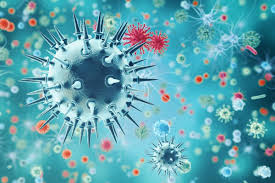Norovirus, a highly contagious stomach bug often referred to as the "stomach flu," is making a widespread return across the United States this winter, according to alarming new data from the U.S. Centers for Disease Control and Prevention (CDC).
During the week of December 5, the CDC recorded 91 outbreaks of norovirus, marking a sharp increase from the 69 outbreaks reported the previous week. This is a concerning jump, especially when compared to recent years, where the first week of December typically saw a maximum of 65 outbreaks.
High-Risk Settings for Rapid Spread
Norovirus outbreaks are particularly common in crowded environments such as nursing homes, schools, jails, and cruise ships. Earlier this month, over 300 individuals on three separate cruise ships fell ill due to a norovirus outbreak, highlighting the ease with which the virus spreads in confined spaces.
The virus transmits rapidly through direct contact with infected individuals or contaminated food, water, or surfaces. Sharing food, drinks, or utensils with an infected person can also spread the virus.
Symptoms and Risks
Symptoms of norovirus, which include sudden vomiting, diarrhea, and other gastrointestinal issues, typically appear 12 to 48 hours after exposure. While most cases resolve within one to three days, dehydration caused by persistent vomiting and diarrhea can be dangerous, particularly for young children, older adults, and individuals with weakened immune systems.
Signs of severe dehydration, such as dry mouth, dizziness, or reduced urination, require immediate medical attention.
Prevention: The Best Defense
The CDC stresses that frequent and thorough handwashing is the most effective way to prevent norovirus infections. Washing hands with soap and warm water for at least 20 seconds, especially before meals, is crucial. Regularly disinfecting surfaces with household cleaners can further reduce the risk of infection.
For those experiencing symptoms, rehydration with water or oral rehydration solutions is essential. Health experts recommend avoiding coffee, tea, and alcohol, as they can exacerbate dehydration.
As the surge continues, public health officials are urging communities to remain vigilant and adopt preventive measures to curb the spread of this highly contagious virus.
